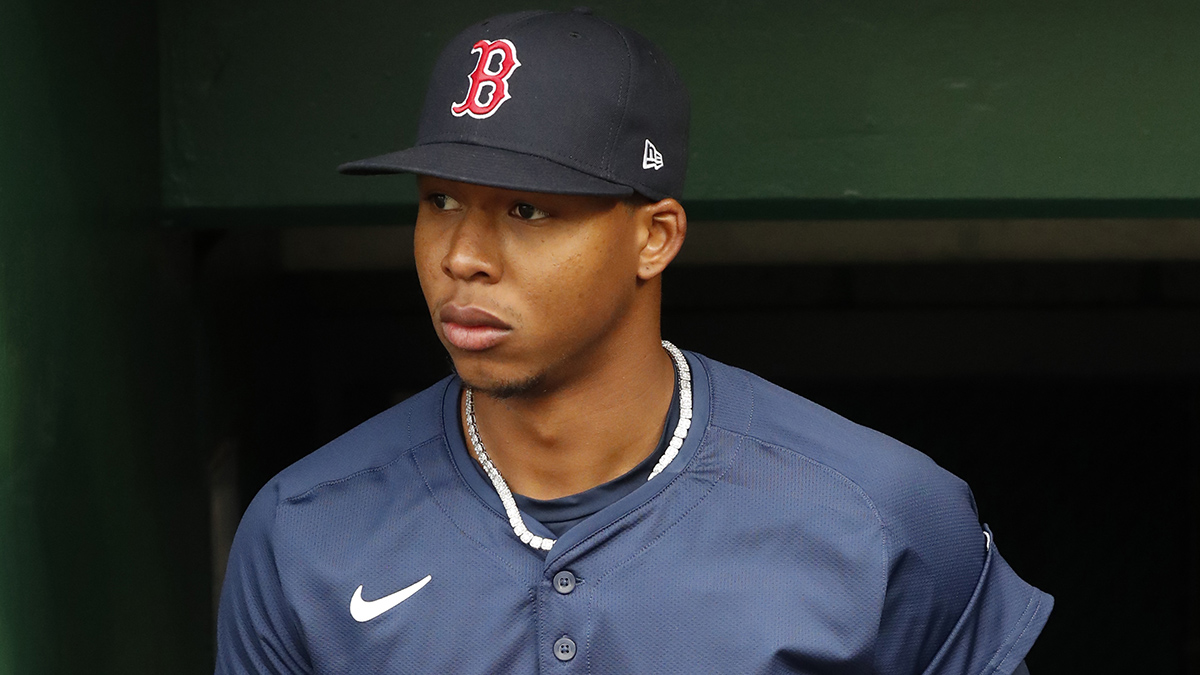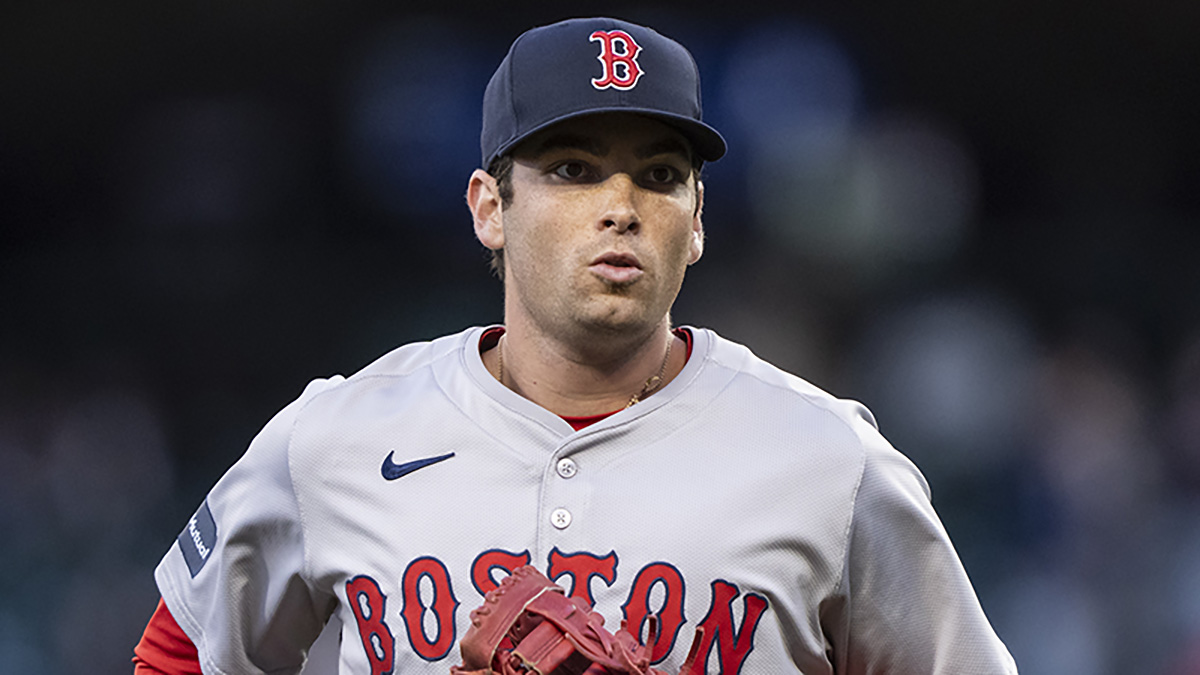A strong reliance on what his eyes tell him, on what he thinks his eyes are showing him, should be expected.
An acceptance of what others have dismissed -- on imprecise statistics like RBIs, on fuzzy concepts like clutch hitters -- is not in itself reason for condemnation.
BASEBALL PREVIEW 2017
- DRELLICH: 2017 Red Sox will be good . . . but not better
- DRELLICH: Dave Dombrowski runs the Red Sox the old-fashioned way . . . but is it the right approach?
- DRELLICH: Meet the two Red Sox decision-makers you never heard of
- BEAN: The best and worst Opening Days
- BEAN: Since Donald Trump's not throwing out any first pitches this year, here's 10 people who could
- GARY AND TRENNI: Which Red Sox player will exceed expectations?
- COMING SUNDAY: Our MLB predictions
- COMING MONDAY: Five Red Sox questions heading into the season
- COMING MONDAY: What does the opener mean as a predictor for the season?
But if Dave Dombrowski is guided primarily by empirical truths he has accepted in more than 40 years in this game, then he faces an uphill battle he may not realize is so steep.
The Red Sox president of baseball operations may know what he's seen. What's unclear is how much weight he gives to what he hasn't seen.
Gathering, hearing all the information available is one thing. Applying it all properly is another.
Boston Red Sox
In a market where his every move and comment will continue to be picked apart, Dombrowski's visualization of the game makes him an outlier from executives who likely more often question their own experiences.
The biggest question facing the top Sox boss is how much he questions himself.
* * * * *
Twenty years have passed since Dombrowski won a World Series with the Florida Marlins. That 1997 title is his only in a long career as a lead baseball executive.
If the wait for another ring eats away at Dombrowski, he doesn't say so. In fact, he suggested that 20 years should not actually be considered 20 years.
It's a deflection based in some truth, but a deflection nonetheless. We don't deflect things we like.
"It's interesting when you say that, because if you looked at it from a reality perspective -- this is what's unusual about general managers' jobs," Dombrowski said. "So, '97 we won a world championship. I probably didn't have a chance to even compete [for another title] until 2006. Right? Not even a chance."
Famously, the Marlins were broken up by ownership after the '97 title run. When he signed on to run the Detroit Tigers in November 2001, he took over a horrible team and, to his credit, turned it around.
"It's not like you've had 20 years of competition year in and year out," Dombrowski said. "I'd say the last four or five years in Detroit [stand out], where you're really like, 'Son of a gun, we could've won this thing.' We could've won [in] 2006 . . . We could've won [with the Red Sox] last year.
"But five of the last six years, I've been part of clubs that have won divisions. You just got to keep doing the same thing."
Maybe, maybe not.
Now in his 60s, Dombrowski says he wants to do this job for a while. He could have taken other routes when he and the Tigers broke up in 2015, including something at the ownership level.
What's left for a guy who has been in the front office for more than 40 years except ownership?
If anyone has the connections to put together a group to buy a club, it's him.
"You know what, people have said that to me, but I like what I do," Dombrowski said. "I mean, I could have chosen to, like now at this time, taken a different job . . . I had people approach me [to ask] if I wanted to be involved in an ownership group.
"I had somebody call me about that. I had somebody call me about -- you know the Toronto job was one, but it was more of a focus on the business end of it, not just the baseball.
"I love what I do. I mean, if you had to ask me what job I would really like to have, this is it . . . My contract's for four more years. I'm not thinking that's my last four years. But we'll wait and we'll see. Other people determine your fate also. In Detroit they determined my fate there."
Entering his second full year with the Red Sox, Dombrowski's honeymoon here is over. It probably officially ended this spring, when pitcher injuries snowballed, led by David Price's elbow.
Either way, he's spent too much in dollars and prospects for eyes not to fall squarely on him.
Recently, Dombrowski said that he's never really felt pressure. Because no one's going to hold him to a higher standard than he does himself, he said.
These are the same kind of truisms his players offer.
Dombrowski did acknowledge the need for a release from work. He jogs on average three or four times a week.
“You know what comes with the territory of people second-guessing you," Dombrowski said. “That's part of the game, that's part of the charm of the game. I realized that for years."
Dombrowski says he sleeps well every night, and that that's always been the case.
His stomach will turn in game. He certainly doesn't like losing. But Dombrowski projects, perhaps purposely, a man unmoved.
(Outside of his attempt to kill media talk of the effect of a shoulder program on Tyler Thornburg's shoulder, when he seemed to lose a bit of control.)
"I don't listen to talk radio, which would upset you," Dombrowski said earlier in March. "I just don't do that . . . There's sometimes that you know people are just ripping on you, you just don't listen to it.
"I didn't feel [pressure as an amateur] player either. I just always felt prepared, ready to go, focused . . . Just never really felt that part of it."
When he took the Sox job, Dombrowski said he was told by John Henry and Tom Werner that ownership is in this for the long haul.
Maybe Dombo and co. are looking at the Sox' situation as a marathon. Maybe they're treating it more like a sprint than they're letting on.
It's hard to win a race of any length if you don't know exactly where the course goes.
* * * * *
Dombrowski's known best for two qualities: Experience and aggressiveness.
The latter's played out obviously. Dombrowski has shown a willingness to cut down the farm system, which his predecessor, Ben Cherington, did not.
Dombrowski brought a player-acquisition perspective that, at the time of his hire, the Sox may ultimately have needed. They had to turn potential talent into needed assests, and he traded pieces of the farm system to bolster the rotation (Chris Sale, Drew Pomeranz) and the bullpen (Craig Kimbrel, Carson Smith, Tyler Thornburg).
(Cherington still got a raw deal in a lot of ways. Both men deserve credit for a 93-win season last year.)
To the former trait: No one would counter that Dombrowski is more experienced than virtually any executive. But does he objectively process all that he has experienced?
Dombrowski will still use RBIs to discuss a player's worth. He is aware of the stigma that statistic now carries for many.
(That stigma was earned because RBIs are team dependent and provide no proven predictability for the future. At best, they paint a blurry picture of past performance.)
“I think they're important, and I know somebody else may say they're not important," Dombrowski said of RBIs. “I think like a lot of things, statistics have a lot of value. But they can also be misleading. . . . [A] guy drives in 100 runs. But he has numerous opportunities to drive in 150, then that 100 doesn't take on much value for me."
Unprompted, Dombrowski turned to another favorite discussion for many, about clutch hitting. Statistically, clutch hitters are hard to identify, for many reasons.
But most everyone -- fans, media, executives -- believes in certain hitters in big spots more than others, even if statistical evidence on a large scale is scant.
"But I've also seen guys -- and I know that some people don't succumb to [the belief] that there's clutch hitting," Dombrowski said. "I don't agree with that myself. Because I have found that there are some guys that are -- somebody has to knock in the runs. So who does it? People that get RBIs. Now, sometimes it's hitting a ground ball to second base, sometimes it's hitting a fly ball.
"So yeah, I think RBIs are important. But I don't mean to say that they're the most important . . . I can't tell you how many times I was with Miguel Cabrera [in Detroit] and he drove in big runs late in the game that other people didn't drive in."
But he's Miguel Cabrera.
Does clutch mean an avoidance of a drop off, or stepping up to something above what one normally is? (To this onlooker, the former is more viable.)
“I think there's both," Dombrowski said. “And I've seen it. It's one of those things where I know you can't measure it all statistically all the time. And sometimes they even out. But the reality is that, I've just seen guys that get big hits late in the game or come through in the clutch. You can just ask people, you don't want to face Miguel Cabrera in that type of situation."
But, of course, one doesn't want to face Miguel Cabrera in any situation.
"People can say what you want about RBIs," Dombrowski said. "I won't get into specific names . . . When you put a guy on third base and there's one out, there's value to driving that guy in.
"A lot of guys who hit the long ball but don't do that struggled to find jobs this winter time . . . Everybody tries to simplify: ‘Well, this is the thing.' There's a lot that's involved in all those types of conversations. And you might have one of those type guys hitting sixth or seventh on your team. But generally if they're hitting third or fourth you probably don't have a real good team."
* * * * *
It's smart to evaluate situational hitting, as long as that evaluation can hold up to scrutiny. Xander Bogaerts has talked about how he doesn't love pressure-packed late moments. These concepts aren't born out of thin air.
But the way Dombrowski views the game opens the door particularly wide to scrutiny.
Dombrowski has seen a ton. Nearly everything in baseball. And subsequently, he's internalized more as fact than he probably consciously realizes.
A lot changes in 20 years.
Still, an abundance of money with the Red Sox -- Henry and Werner's resources -- can make up for a potential deficiency in approach.
“We're trying to win. It's a great organization," Dombrowski said during a conversation about how long he wants to do this. “I have the ability to put together an organization that I think can be competitive year in and year out.
"With all the resources and wherewithal that you would like to have, and ownership support, so I love it."


